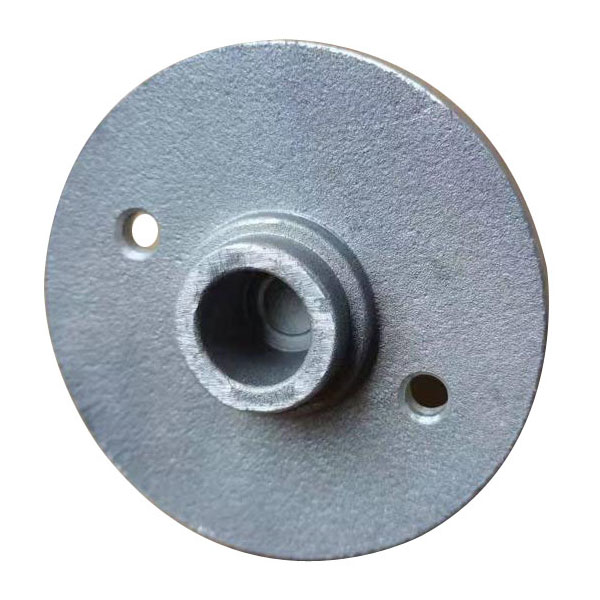Why Is Aluminum Casting a Popular Choice in Manufacturing?
2024-12-30
Aluminum casting is a well-established manufacturing process that has been widely used across various industries due to its numerous advantages. From automotive parts to aerospace components, aluminum casting plays a vital role in creating high-performance products that meet the demands of modern engineering. But why has aluminum casting become such a popular choice in manufacturing? In this blog, we’ll explore the reasons behind its widespread use and the benefits it offers to industries worldwide.
What Is Aluminum Casting?
Aluminum casting is a process in which molten aluminum is poured into a mold to create a solid object. The mold is typically made of sand, metal, or other materials designed to withstand high temperatures. Once the aluminum cools and solidifies, the mold is removed, and the final product is ready for further processing, such as finishing, machining, or assembly.
Aluminum casting can be performed using various methods, including sand casting, die casting, and investment casting, each of which offers specific benefits depending on the product requirements.
Why Choose Aluminum Casting?
Several key factors make aluminum casting a favored choice in the manufacturing of parts and products across a broad range of industries. Let’s break down the primary advantages:
1. Lightweight and Durable
Aluminum is known for its lightweight nature, making it an ideal material for industries that require strong yet lightweight components. In automotive and aerospace industries, where weight reduction is crucial for improving fuel efficiency and performance, aluminum casting provides the perfect solution. Despite being lightweight, aluminum is also highly durable and resistant to corrosion, ensuring that cast aluminum parts can withstand harsh environments.
2. Excellent Molding Capabilities
Aluminum casting offers excellent molding capabilities that allow manufacturers to produce complex and intricate shapes that would be difficult or impossible to achieve with other materials or processes. This flexibility enables the creation of components with fine details and thin walls, often reducing the need for additional machining or finishing steps.
3. Cost-Effective
One of the standout reasons for choosing aluminum casting is its cost-effectiveness. Aluminum is relatively inexpensive compared to other metals like steel or titanium, and the casting process itself is efficient, leading to reduced production costs. Additionally, aluminum's lightweight nature often results in savings in transportation and handling costs, especially in industries like automotive, where weight reduction can significantly impact overall cost-efficiency.
4. Excellent Thermal and Electrical Conductivity
Aluminum is an excellent conductor of both heat and electricity. For products like heat exchangers, electrical housings, and components in electronic devices, aluminum casting ensures that these parts can efficiently perform their intended functions. Its superior thermal conductivity also makes aluminum a preferred choice for applications that require effective heat dissipation.
5. Recyclability
Aluminum is one of the most recyclable materials on the planet, and aluminum casting takes full advantage of this. Scrap aluminum can be melted down and reused in the casting process, reducing the demand for new raw material and minimizing waste. This environmentally friendly aspect makes aluminum casting a sustainable choice for industries that are focused on reducing their environmental impact.
6. Precision and Consistency
Aluminum casting provides precision and consistency in the production of parts. Through modern casting techniques, manufacturers can achieve high levels of dimensional accuracy, ensuring that components meet strict tolerances. This consistency is essential in industries like aerospace, automotive, and medical device manufacturing, where even the smallest deviation from specifications can result in performance issues or safety concerns.
7. Versatility Across Industries
Aluminum casting finds applications across a wide range of industries due to its versatility. Some common industries where aluminum casting is heavily utilized include:
- Automotive: For engine blocks, transmission cases, wheels, and other structural components.
- Aerospace: For aircraft parts like engine components, brackets, and structural elements.
- Electronics: For components such as housings, connectors, and heat sinks.
- Consumer Products: For items like cookware, furniture, and home appliances.
8. Resistance to Corrosion
One of aluminum's natural properties is its resistance to corrosion, especially when exposed to water or air. This makes aluminum casting particularly appealing for products that will be used in outdoor or marine environments. The corrosion resistance also reduces the need for regular maintenance, further adding to the cost savings and longevity of the product.
Types of Aluminum Casting Processes
There are several aluminum casting methods, each suited to different applications and requirements:
1. Sand Casting: This is the most common and cost-effective method, particularly for low-volume production. A sand mold is created, and molten aluminum is poured into it to form the desired part.
2. Die Casting: Used for high-volume production, die casting involves injecting molten aluminum under high pressure into a steel mold (die). This method is ideal for producing complex and precise parts.
3. Investment Casting: Also known as the lost wax method, this technique involves creating a detailed wax pattern that is coated with a ceramic shell. After the wax is melted away, molten aluminum is poured into the mold. This process is used for parts that require high precision and surface finish.
4. Permanent Mold Casting: In this method, aluminum is poured into a reusable metal mold, typically made from steel or cast iron. Permanent mold casting is ideal for producing medium to high volumes of parts with a smooth surface finish.
Conclusion: The Continued Growth of Aluminum Casting
As industries continue to push the boundaries of innovation and performance, aluminum casting remains a highly valuable manufacturing process. Its lightweight, durability, and versatility have made it the material of choice for many modern products, from car engines to consumer electronics. The benefits of cost-effectiveness, precision, and recyclability further solidify aluminum casting as a key player in the manufacturing world.
Whether it’s for large-scale industrial applications or precision components, aluminum casting offers a unique combination of characteristics that make it a practical and reliable solution for manufacturers across the globe. With continued advancements in casting technology, aluminum casting’s role in modern manufacturing will only continue to grow.



